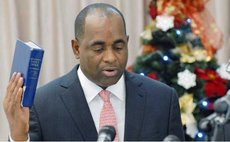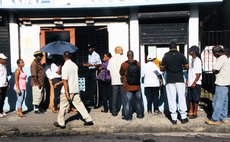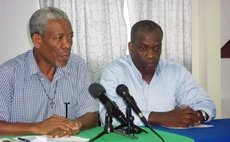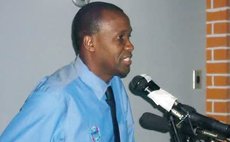Gregor Nassief: There is Huge Potential in Tourism
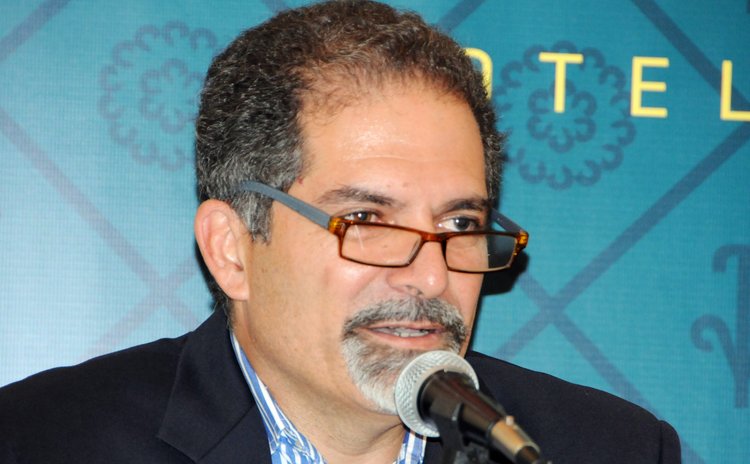
The Sun: What has Dominica done right?
GN: Dominica has done a lot right in terms of tackling our infrastructure issues which were very serious. The impact on tourism is most obvious with the upgrade to Melville Hall and the introduction of night landing. The latter has enabled many more persons to get to the island in a day, which is a huge plus. The road network from Melville Hall is also undergoing a major upgrade; upgrades to various national sites/attractions as well as the opening of the WNT (Waitukubuli National Trail) was significant. The soon-to-be-opened Cabrits Hotel & Spa, an arrangement between the Government and Morocco, if well managed, will give a great boost to tourism on the North of the island. The Government's focus on tackling airlift has also born fruit. With new service providers such as WinAir and Seabourne, and with the tremendous increase in Ferry arrivals from the French West Indies, improvements have been realized. The recent development and approval of a Tourism Master Plan also gives a solid direction to the industry.
The Sun: What is lacking? What must be done to improve tourism?
GN: Several things, especially considering that the industry as a whole has been relatively stagnant for ten years. First, policy. Dominica is uncompetitive in many areas compared to the other islands, both for investors as well as for tourists. For investors, the transfer taxes required to purchase and develop property is prohibitive. In Dominica, the buyer/investor can pay over 10% tax if local and over 20% tax if foreign, while in Barbados it is 0%, and in most other islands it is less than 5%. Dominica's current legislation also does not cater for villa developments, mixed resorts, shared ownership concepts like timeshare, while the other islands have seen hundreds of millions of dollars flow into the economies from these types of resorts. Also, Dominica's application of the VAT creates problems for investors as well as for visitors. The rates, with St. Vincent & Grenada, are the highest in the Caribbean (making our accommodation and service rates higher) and its apparent application to concepts such as service charge and other staff benefits is unique in the region and causes huge challenges for the industry. The hotel associations of St. Vincent, Grenada, St. Lucia, Barbados, Antigua and St. Kitts all confirm that VAT IS NOT applied to service charge, staff meals, and such staff benefits.
Add to all of this the fact that we are the most expensive island to travel to, and you begin to understand. So our industry needs a 'policy boost' in order to create an enabling environment for investing in and operating tourism-based businesses in order to give us a fighting chance when competing with other islands whose tourism products are so much more developed.
Second, branding & marketing. Dominica's branding and marketing needs to be reviewed and additional resources allocated. The island is truly unique and offers an amazing experience (unparalleled, in my opinion), and the way we communicate what the destination has to offer and the way we appeal to potential visitors needs to be significantly enhanced. Done properly, we would see a boost in visitor arrivals in the short term.
Third, service. It is unacceptable that visitors on the Ferry from the French West Indies or Europe have to go through a traumatic immigration and customs process with inadequate systems and procedures, and an inadequate level of service. Dominicans are amazingly friendly, open and sincere, and are unquestionably our most important asset, but we need to invest in training, systems and processes to really transform these great characteristics into a positive visitor experience. And this goes across the board – the private and public sector.
Fourth, a true public-private sector partnership. The leadership and organizational framework of the various institutions – the Ministry of Tourism, the DDA, the IDA, associations like the DHTA, and the various public and private sector stakeholders are not working in harmony to bring the country's tourism industry forward. This much change. And fifth, continue the infrastructure improvements. Dominica should focus on seeking funds for upgrading/improving Roseau to make it a charming and historical capital, the true gateway to the Nature Island, as well as a marina for the Portsmouth Area.
The Sun: What's the impact of the limited airline seats?
GN: I am not sure we have limited airline seats. In fact, Dominica's average passenger load factor is around 55%, so there is a lot of spare capacity. The problem is more that we need to bring the supply and demand in sync in terms of schedules in order to maximize the linkages with our nearby hubs. And of course we do certainly need to introduce new airlift services to potential additional hubs, like St. Lucia's Hewanorra Airport, as well as Canefield-based connections to Guadeloupe and Martinique. I am also not in favour of an international airport, something most people believe is necessary. That is an EC$1 billion venture with astronomical maintenance and operating costs. What extent of subsidies will we have to pay for long haul jets to land here? With our current 55% passenger load factor, why is it necessary? If we include "afford" in our definition of "need", I do not think we need an international airport, and it is interesting that the Tourism Master Plan does not mention one. It has been said that we have 5 international airports, not one – Barbados, Antigua, St. Lucia, St. Marteen and San Juan. As with several other Caribbean islands who live off of tourism like St. Barths and Anguilla, what we really need is an efficient airlift service to and from the different hubs. And this is why fixing LIAT and getting it to provide efficient and reliable service to its core routes is so important. I believe Dominica's investment in LIAT was the right move – being almost 80% dependent on one airline and not taking an ownership stake is not prudent. But at the end of the day, what really matters is using that ownership stake to influence LIAT and shape its future.
The Sun: Is the accommodation sector up to international standards?
GN: Much work is needed, particularly in the areas of customer service and employee training. And then of course there are the physical facilities. Some of us need to make sizable investments to upgrade. The Government is on a drive to increase the number of export ready rooms in the Roseau area and has announced a new hotel on the outskirts of the capital. I would prefer to see a real private-public sector partnership to increase demand for the destination and to create an enabling environment for investment. And then to allow the private sector themselves to invest and build up the accommodation in and around Roseau both from a quality and quantity perspective. With occupancies in the Roseau area averaging 50%, putting 150 or 200 additional rooms on the market is not necessarily the right approach in my view. It would be great if we could work together to find an approach that would not jeopardize existing investments. The hoteliers led by the DHTA need to step up to the challenge and work with government to find the right solution.
Thinking beyond Roseau, the Woodford Hill Resort project may be a better way to increase export ready rooms for the island. It has been on paper for years and requires some bridge financing to get off the ground. The project will comprise a mix of cottages, townhouses and villas, with a potential 300+ rooms. It would be the island's first major mixed resort and villa development with a health and wellness focus in an area with significant tourism development potential. And it would be operated by eco-luxury spa group Six Senses, bringing to Dominica its first major flagship brand. It checks all the right boxes.
The Sun: How about attractions?
GN: I think I spoke to this in first paragraph. Great work has been done but it is an ongoing challenge.
The Sun: Is government policy clear?
GN: In my opinion, no. The fact is that our tax, legal and fiscal framework as it relates to tourism development is uncompetitive. There is a policy vacuum, and what the tourism industry needs now more than ever is real commitment evidenced by clear policies that give our industry a competitive edge. In the 2013/14 budget address, some of these issues were identified and the hope is that 2014 will see significant changes in order to give tourism a much needed boost. I am optimistic this will happen.
The Sun: Any other thoughts you think are important to the discussion?
GN: Tourism is the island's #1 contributor to GDP and to foreign exchange. I also believe it has the greatest trickle-down effect based on direct and indirect employment. And agriculture is a big part of this. We all know how critical agriculture is to Dominica's future but I am not sure we realize that the surest way to save agriculture is through a growing tourism industry. Looking at the direct purchases from local farmers and fishermen of just the two hotels that I am involved with, and making a conservative extrapolation on the industry, inclusive of restaurants, I would estimate that tourism puts over EC$5m directly into the hands of farmers and fishermen on an annual basis. There is huge potential here, but it all depends on getting the tourism industry moving in the right direction. If we put our head together, we can make it happen.
(Gregor Nassief is the owner and director of Secret Bay Resort and executive chairman of the Fort Young Hotel).
